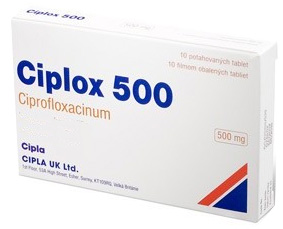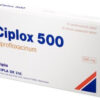Ciplox is a widely used medication that belongs to the fluoroquinolone antibiotic class. It is commonly prescribed to treat a variety of bacterial infections, including respiratory tract infections, urinary tract infections, skin and soft tissue infections, and gastrointestinal infections. Ciplox works by inhibiting the growth and spread of bacteria in the body, helping to eliminate the infection and relieve the associated symptoms.
This medication is available in tablet form and is taken orally. It is typically taken with or without food, usually twice a day, as directed by your healthcare provider. The dosage and duration of treatment may vary depending on the specific condition being treated and the severity of the infection.
What to Avoid When Taking Ciplox
While taking Ciplox, it is important to be aware of certain factors and substances that may interfere with its effectiveness or cause adverse reactions. Here are some important things to avoid:
- Avoid consuming any dairy products, such as milk, yogurt, or cheese, at the same time as taking Ciplox, as they can interfere with the absorption of the medication.
- Avoid taking antacids or supplements containing calcium, magnesium, aluminum, or iron within 2 hours before or 6 hours after taking Ciplox, as they can also reduce the absorption of the drug.
- Avoid exposure to direct sunlight or artificial UV rays, such as tanning beds, as Ciplox may make your skin more sensitive to sunlight, increasing the risk of sunburn or skin rash.
- Avoid engaging in activities that require mental alertness or coordination until you know how Ciplox affects you, as it may cause dizziness or lightheadedness.
- Avoid drinking alcohol while taking Ciplox, as it may increase the risk of certain side effects.
Adverse Reactions
Ciplox can cause certain side effects, although not everyone experiences them. It is important to be aware of these potential adverse reactions and seek medical attention if they become severe or persistent. Common side effects of Ciplox may include:
- Nausea and vomiting
- Diarrhea
- Headache
- Dizziness
- Insomnia
Less common but more serious side effects that may require immediate medical attention include:
- Allergic reactions, such as rash, itching, swelling, or difficulty breathing
- Tendon rupture or swelling, especially in the Achilles tendon
- Nervous system effects, such as seizures, hallucinations, or tremors
- Changes in blood sugar levels
- Liver problems
Dosage Guide
The dosage of Ciplox prescribed by your healthcare provider will depend on the specific infection being treated, your age, weight, and overall health. It is important to follow the recommended dosage instructions and complete the full course of treatment, even if you start to feel better.
If you miss a dose of Ciplox, take it as soon as you remember. However, if it is almost time for your next scheduled dose, skip the missed dose and continue with your regular dosing schedule. Do not take a double dose to make up for a missed one.
In the event of an overdose, seek immediate medical attention or contact a poison control center. Overdosing on Ciplox can lead to symptoms such as dizziness, seizures, confusion, and gastrointestinal disturbances. It is important to take the medication only as directed by your healthcare provider.
Ciplox Compatibility
Ciplox may interact with certain medications, altering their effectiveness or increasing the risk of side effects. It is important to inform your healthcare provider about all the medications you are currently taking, including prescription drugs, over-the-counter medicines, vitamins, and herbal supplements.
Some common medications that may interact with Ciplox include:
| Medication | Potential Interaction |
|---|---|
| Warfarin | Ciplox may increase the risk of bleeding |
| Theophylline | Ciplox may increase blood levels of theophylline, leading to toxicity |
| Nonsteroidal anti-inflammatory drugs (NSAIDs) | Ciplox may increase the risk of seizures |
| Probenecid | Ciplox may increase blood levels of probenecid |
| Tizanidine | Ciplox may increase blood levels of tizanidine, leading to sedation |
Frequently Asked Questions
-
Q: Can Ciplox be used to treat viral infections?
A: No, Ciplox is only effective in treating bacterial infections and will not be effective against viral infections, such as the common cold or flu. -
Q: Can I drink alcohol while taking Ciplox?
A: It is recommended to avoid alcohol while taking Ciplox, as it may increase the risk of certain side effects. -
Q: Can Ciplox be taken during pregnancy?
A: It is generally not recommended to take Ciplox during pregnancy, as it may harm the developing fetus. However, your healthcare provider will weigh the potential benefits against the risks in certain situations. -
Q: Can Ciplox be taken by children?
A: Ciplox is generally not recommended for use in children, as it may interfere with bone development. However, in certain cases, it may be prescribed by a healthcare provider if the benefits outweigh the risks. -
Q: Can Ciplox cause drug interactions?
A: Yes, Ciplox may interact with certain medications, so it is important to inform your healthcare provider about all the medications you are currently taking to avoid potential interactions.


Reviews
There are no reviews yet.